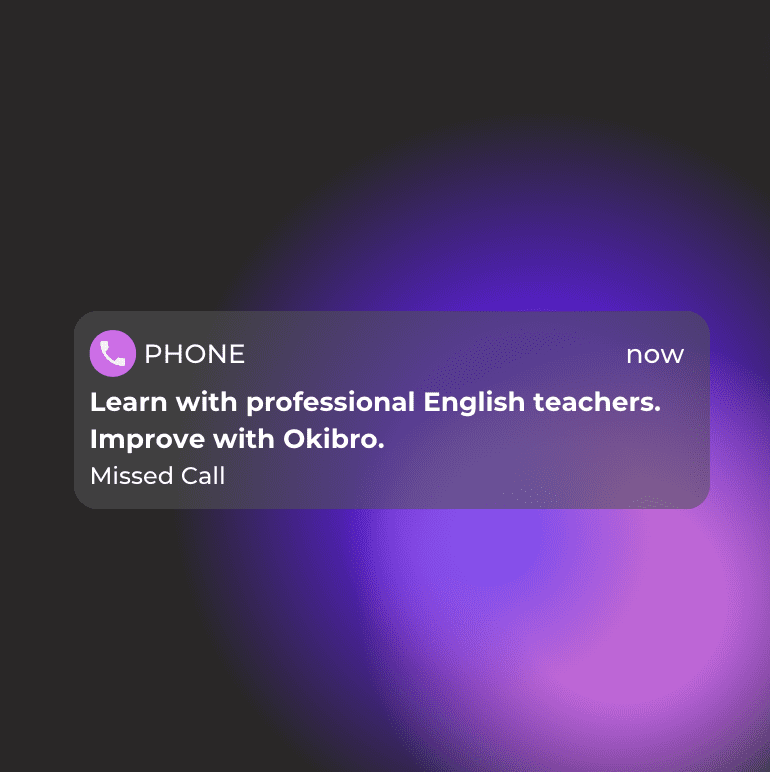25+ Chatbots AI Tools for Customer Service
Elon Musk CEO of SpaceX
“When Henry Ford made cheap, reliable cars, people said, “Nah, what’s wrong with a horse?”
That was a huge bet he made, and it worked.”
In the fast-paced digital era, where customer satisfaction is the cornerstone of business success, Artificial Intelligence (AI) has emerged as a game-changer. The advent of AI-powered chatbots has revolutionized the way businesses interact with their customers, offering real-time responses and personalized experiences.
“25 Chatbots AI Tools for Customer Service” delves into this transformative technology, exploring how it is reshaping customer service paradigms.
This article provides an in-depth analysis of 25 cutting-edge chatbot tools, each harnessing the power of AI to streamline customer interactions, automate responses, and enhance overall service efficiency.
From simple query handling to complex problem-solving, these tools exemplify the integration of technological sophistication with customer service needs. We will explore various aspects, including natural language processing capabilities, machine learning algorithms, integration with existing customer relationship management systems, and their impact on user experience.
As we navigate through each tool, we will uncover their unique features, potential benefits, and real-world applications, providing valuable insights for businesses looking to adopt AI chatbot solutions.
Whether you are a small enterprise or a large corporation, understanding the landscape of AI chatbots in customer service is crucial for staying ahead in today’s competitive market.
Join us as we embark on this journey, unveiling the future of customer service through the lens of AI-driven chatbot technology.
Contents
Definitions
Artificial Intelligence (AI): This is a branch of computer science concerned with creating intelligent machines capable of performing tasks that require human intelligence, such as learning, natural language understanding, and problem-solving.
Chatbots: These are programs that use artificial intelligence and natural language processing to conduct a conversation with a user in written or spoken form. They can be used to automate and optimize customer service.
Natural Language Processing (NLP): This is a subdivision of artificial intelligence focusing on the interaction between computers and human language. NLP allows computers to understand, interpret, and respond to human language in a useful way.
Machine Learning (ML): This is a method of artificial intelligence that gives systems the ability to automatically learn and improve from experience without being explicitly programmed. ML is often used to enhance the efficiency of chatbots.
CRM System Integration: Chatbots can be integrated with Customer Relationship Management (CRM) systems to provide more personalized customer service and efficient management of customer data.
Data Analytics: The collection and analysis of data about customer interactions, which helps improve the service process and optimize the operation of chatbots.
UX/UI Design for Chatbots: Designing interfaces and user interactions with chatbots to ensure ease of use and effectiveness.
Privacy and Security: Issues related to the protection of user personal data and ensuring the security of interactions with chatbots.
LiveHelpNow
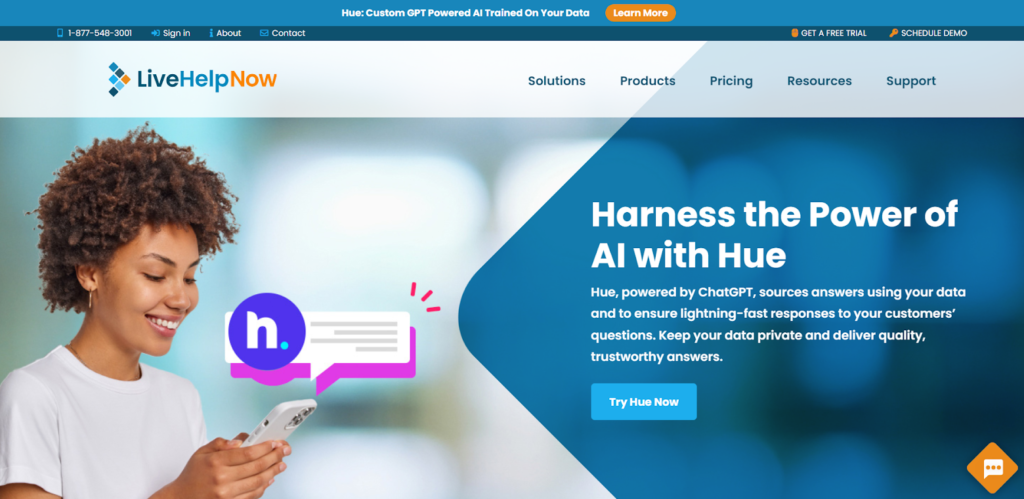
LiveHelpNow is a company specializing in customer support software, aiming to enhance the customer experience and support business growth. Their offerings encompass a wide range of features, including AI-driven chatbots, workforce management tools, and call deflection solutions. LiveHelpNow caters to teams of all sizes across various industries, providing omnichannel communication, support ticket management, automatic lead forwarding, and self-service options.
I’ve chosen LiveHelpNow as an exceptional AI chatbot tool due to its extensive feature set, addressing diverse customer service requirements. What sets this tool apart is its integration of live chat, email ticketing, and knowledge base functions into a single platform. This versatility makes it a valuable asset for managing customer interactions across multiple communication channels.
Pros
- Comprehensive Feature Set: LiveHelpNow offers a wide range of tools to enhance customer service, making it valuable for various businesses.
- Versatility: This tool combines online chat, email ticket processing, and knowledge base functions into a single platform, streamlining customer interaction management.
- Omnichannel Approach: LiveHelpNow enables communication with customers through different channels, enhancing overall customer support.
Cons
- Cost: Using LiveHelpNow can be expensive for small businesses or startups, potentially limiting access to its features.
- Staff Training: Implementing and training employees to use all of LiveHelpNow’s capabilities may require time and resources.
- Integration: Some companies may face challenges in integrating LiveHelpNow with existing systems and customer service processes.
Website Overview
Traffic
6.8K
Traffic by location
United States 3.5K
Cambodia 1.4K
India 564
Top 3 organic competitors
Livechat.com
doded.mil
Katapult.com
Pricing
Live chat and texting $21/per Agent
Ticket Management $21/per Agent
Zoho Desk
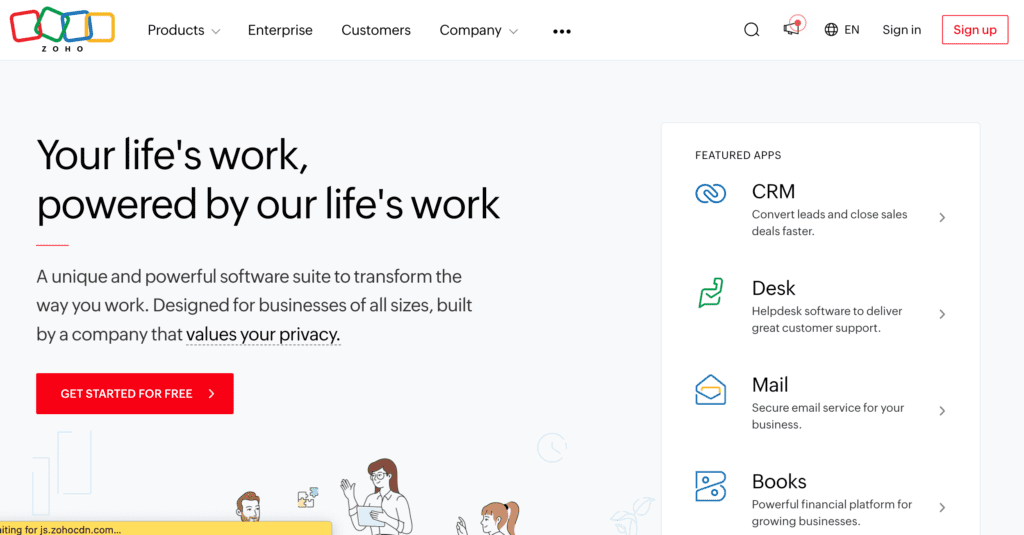
In addition to handling typical chatbot functions, Zoho’s Zia AI-powered assistant is proficient in performing various tasks such as executing or modifying orders according to customer directives. This software transforms the data it gathers into visual representations and organized lists, enhancing the ease of comprehension and analysis.
Furthermore, the platform boasts an exceptionally user-friendly development interface. Zoho’s Zia is available at a starting price of $14 per user per month and provides a 15-day free trial period.
Pros
- Comprehensive Software Suite: Zoho offers a unified cloud software that helps in breaking down silos between departments, thus increasing organizational efficiency. This makes it suitable for businesses of all sizes.
- Data Privacy and Trust: Zoho emphasizes user privacy and does not engage in selling user data or rely on advertising-based business models. The company makes money solely from the software license fees paid by its users.
- Continuous Innovation: Zoho invests heavily in research and development and prefers to own its entire technology stack, including running its own data centers globally. This approach underlines its commitment to innovation and software quality.
Cons
- Data Importing Limitations: Zoho’s data importing functionality, particularly via Excel CSV, could be improved in terms of auto field matching, which indicates some limitations in data integration capabilities.
- Performance and Technical Requirements: Users have noted that Zoho applications can sometimes be slow and sluggish. Additionally, the backend and setup may require fairly high technical skills, which could be a barrier for users with less technical expertise.
- Service Interruptions: There have been instances where Zoho services have been down, causing disruptions in the workday for its users until the issues were resolved.
Website Overview
Traffic
6.6M
Traffic by location
India 2.8M
United States 888.6K
United Kingdom 237.2K
Top 3 organic competitors
Invoicehome.com
freeinvoicebuilder.com
Neo.space
Pricing
Zoho’s Zia costs from $14/user/month and offers a 15-day free trial.
Freshchat
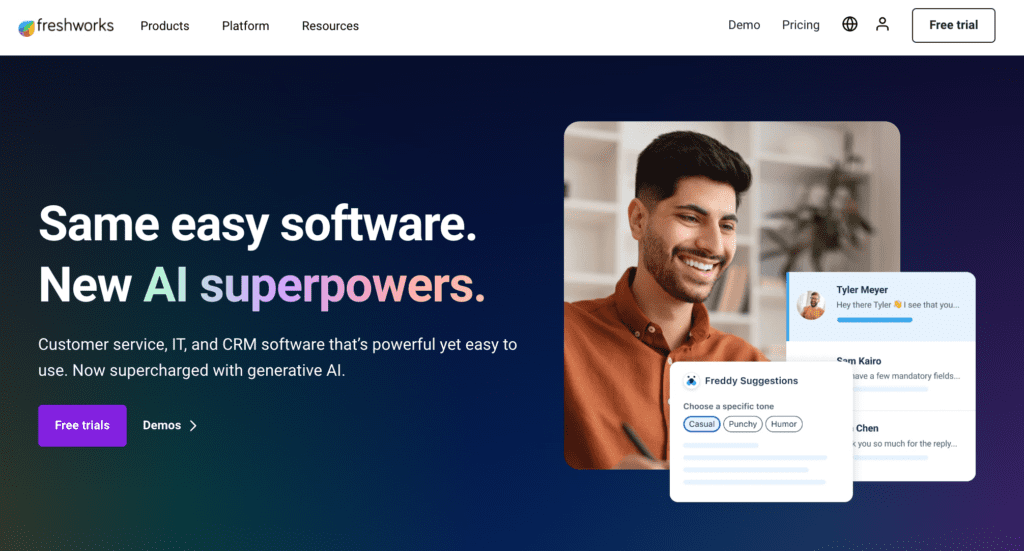
Freshworks Inc. is a software company that specializes in customer engagement tools for businesses of various sizes. Their product suite includes Freshdesk, an intuitive customer support software; Freshsales, a CRM tool tailored for sales teams; and Freshservice, an IT service management software. Freshworks’ solutions are known for their user-friendly interfaces and comprehensive features that enable companies to streamline their customer support, sales, and IT operations. The company focuses on providing software that is easy to use, affordable, and equipped with powerful automation and analytics tools to help businesses enhance their customer interactions and internal processes.
Pros
- Flexible CRM Solution with Advanced Features: Freshworks offers a flexible CRM solution that includes contact scoring and prioritization, a virtual phone system for handling global sales calls, and an updated product catalog assigned to deals, providing a comprehensive tool for managing customer relationships.
- Efficient Management and Automation: The platform allows for efficient management of customer data and workflows, with capabilities to automate manual practices and upload contacts, customer interactions, and data from third-party platforms.
- Customizable Platforms and Mobile App: Freshworks offers highly customizable platforms that can be tailored to reflect a brand’s messaging and theme. The on-the-go mobile app ensures sales teams stay connected and can access important information, record voice notes, make calls, book Ubers, send emails, and scan documents with a phone camera.
Cons
- User Interface and Dashboard Clutter: Some users find Freshworks’ user interface less modern compared to competitors like HubSpot, and the deal management dashboard can feel cluttered.
- Support Quality: While Freshworks provides various support channels, some users have reported difficulties in getting effective help, as many responses are automated and pre-populated. Although tutorials and videos are available for system implementation and troubleshooting, direct support could be improved.
- Limited Integrations: Freshworks has limitations in terms of integrations, particularly with third-party applications. This limitation can restrict the flexibility and scalability of the system for businesses relying on a diverse set of tools.
Website Overview
Traffic
477K
Traffic by location
United States 138.4K
India 110.4K
United Kingdom 24.1K
Top 3 organic competitors
Helpscout.com
8×8.com
Helpdesk.com
Pricing
Free: For getting started or upto 10 agents
Growth: For fast growth
$ 19/agent/month, billed annually
$23/agent/month, billed monthly
ProPOPULAR: For high performance
$ 49/agent/month, billed annually
$59/agent/month, billed monthly
Enterprise: For enterprise-grade support
$ 79/agent/month, billed annually
$95/agent/month, billed monthly
Zoho SalesIQ
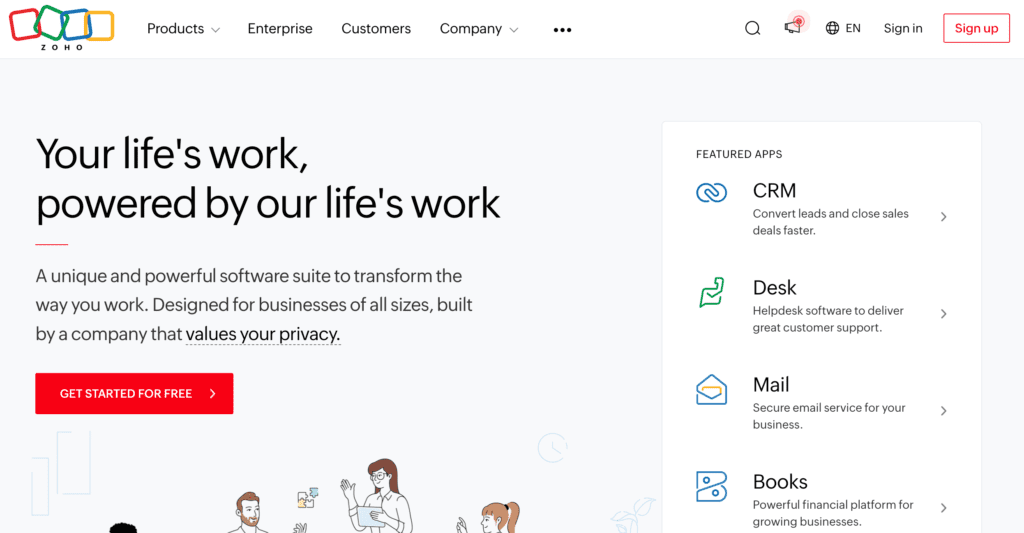
Zoho is a technology company that has been in operation for over 25 years, distinguishing itself by taking a unique approach to product development. This approach is deeply rooted in the belief that good software is a work of art, requiring time and mastery. Their team spends years honing their skills to deliver products that are not only functional but also loved by their customers. Software development at Zoho is more than just a job; it’s a passion.
Pros
- Advanced Sales Process Automation: Zoho CRM offers sophisticated stages and workflows for sales process automation. This feature allows businesses to streamline their sales processes for efficiency and effectiveness.
- Comprehensive Reporting and Dashboarding: The platform provides robust reporting and dashboarding capabilities, enabling businesses to effectively track performance and make data-driven decisions.
- User-Friendly Interface and Data Management: Zoho CRM has a minimalistic look and an easy-to-use interface. It also provides efficient database management, allowing easy export of data in various formats for use with other programs.
Cons
- Data Importing Limitations: The data importing functionality, especially via Excel CSV, could be improved in terms of auto field matching. This suggests some limitations in the integration capabilities of Zoho CRM.
- Performance Issues and Technical Requirements: Some users have experienced that the application can be slow and sluggish at times. Additionally, the backend and setup of Zoho CRM may require fairly high technical skills, which could be a barrier for less technical users.
- Service Interruptions: There have been instances where Zoho services were down, causing work disruptions until the issues were resolved. Such downtime can be a significant inconvenience for businesses relying on the platform for their daily operations.
Website Overview
Traffic
6.6M
Traffic by location
India 2.9М
United States 893.7K
United Kingdom 238.9K
Top 3 organic competitors
Billdu.com
Invoicehome.com
Freeinvoicebuilder.com
Pricing
FREE
BASIC €7/operator/month billed annually
PROFESSIONAL €12,75/operator/month billed annually
ENTERPRISE €20/operator/month billed annually
Conversica
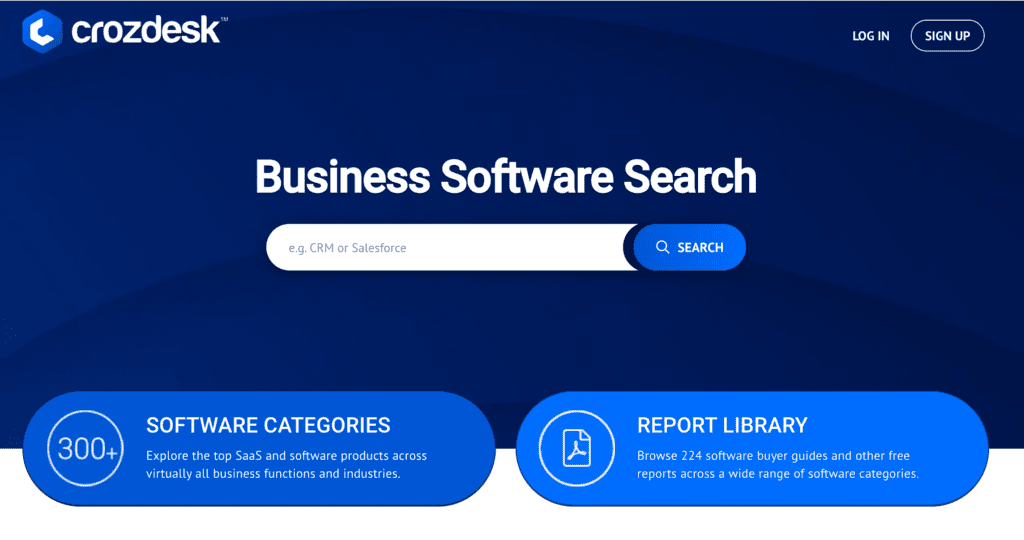
Conversica is an AI-driven communication software designed to automate and personalize customer interactions in a scalable manner. It uses advanced artificial intelligence to engage with customers, leads, and contacts, often functioning as a virtual assistant. The software specializes in initiating, maintaining, and managing communication, particularly in the context of sales and customer service.
Pros
- Real and Natural Conversations: Conversica’s chatbots are capable of engaging in real and natural conversations, which helps in building relationships with potential customers and attracting them to a brand.
- Efficient Lead Management: The system is designed to filter and present only the best customers and companies for human agents to approach, enhancing the efficiency of the lead management process.
- Personalized Approach Without Using Employee Bandwidth: Conversica provides a way to personally approach prospects without extensively using employee resources. This allows for more efficient use of personnel while maintaining a high level of customer engagement.
Cons
- Confusing Interface: Some users find the interface of Conversica a bit confusing, especially when first starting to use it. The main screen can become saturated as more leads are generated, which can make navigation and management challenging.
- Trial and Error for Natural AI Interaction: To achieve a completely natural feeling in AI conversations, a significant amount of trial and error testing is required, which can be time-consuming and resource-intensive.
- Issues with Admin Access and Backoffice Navigation: Some users have reported frustration when they do not have admin access, as this limits the availability of certain features. Additionally, it can be challenging to understand the functionalities in the backoffice, adding to the learning curve.
Website Overview
Traffic
63.6K
Traffic by location
United States 36.7K
India 9.9K
United Kingdom 2.5K
Top 3 organic competitors
Capterra.com
Getapp.com
Softwareadvice.com
Pricing
Free Demo
From $2999/month.
Ushur
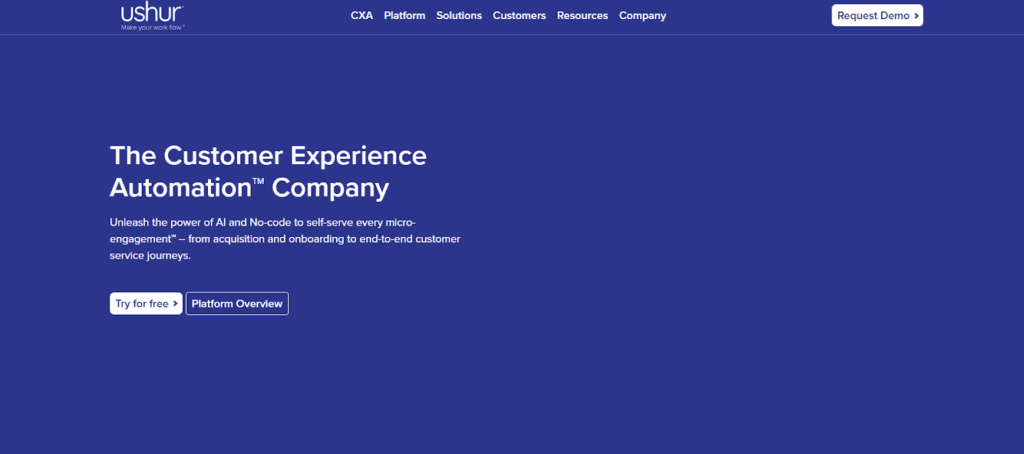
Ushur is a company specializing in Customer Experience Automation (CXA), which harnesses the power of artificial intelligence (AI) and no-code solutions to self-service every aspect of customer interaction, from acquisition and onboarding to complete customer service journeys. Their platform includes several key features:
- Conversational Apps: These provide intelligently automated conversations.
- Invisible App: Offers a secure, app-like experience.
- Invisible Portal: A no-code portal-like experience.
- SmartMail: Focused on intelligent email automation.
- Intelligent Document Automation: This feature involves understanding and automating documents.
Ushur offers tailored solutions for various industries, including insurance, healthcare, and banking & financial services. Additionally, they address specific use cases like email triage, IVR deflection, two-way texting, automated surveys, quoting & RFP automation, sales enablement automation, automated claims processing, and First Notice of Loss (FNOL) process automation
Pros
- Advanced Automation Capabilities: Ushur’s platform leverages AI and no-code solutions to automate a wide range of customer interactions, from basic queries to complex customer service journeys. This can significantly improve efficiency and customer satisfaction.
- Industry-Specific Solutions: The platform offers tailored solutions for industries like insurance, healthcare, and banking, ensuring that the automation is relevant and effective for specific industry needs.
- Wide Range of Features: Ushur provides various features such as Conversational Apps, Invisible App, SmartMail, and Intelligent Document Automation, allowing businesses to automate different aspects of customer interaction and document handling.
Cons
- Complexity and Learning Curve: Implementing and optimizing AI and automation systems can be complex, and staff may require training to use these systems effectively.
- Potential Over-Reliance on Automation: While automation can improve efficiency, over-reliance on it can lead to a lack of personal touch in customer service, which might not be suitable for all types of customer interactions.
- Integration with Existing Systems: Integrating Ushur’s platform with existing business systems and processes might be challenging and require additional resources and time.
Website Overview
Traffic
2.3K
Traffic by location
United States 1.5K
India 599
Russian Federation 64
Top 3 organic competitors
Indicodata.ai
Guidewire.com
Easysend.io
Pricing
Pricing upon request
Tidio
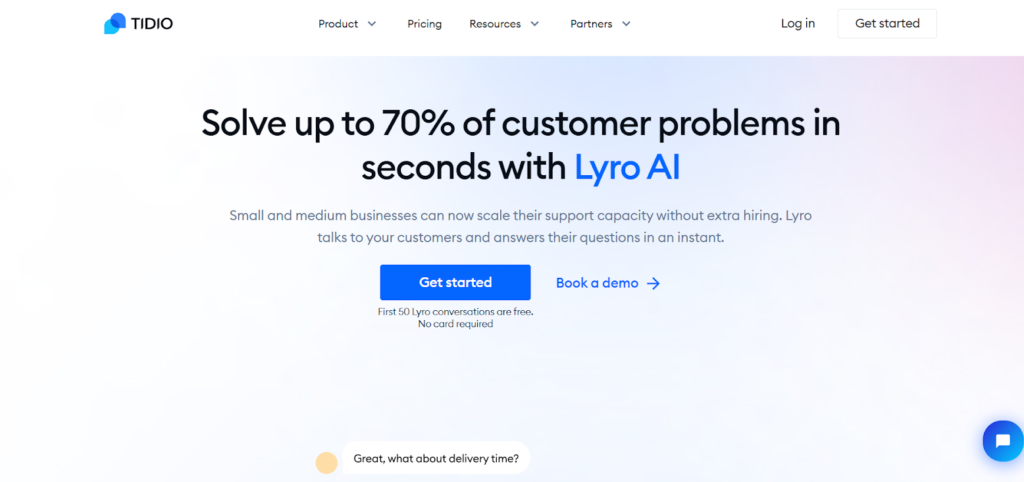
Lyro AI, featured on Tidio’s website, is a conversational AI tool designed to enhance customer support for small and medium-sized businesses. It boasts the ability to resolve up to 70% of customer queries instantly, significantly scaling support capabilities without the need for additional hiring. The first 50 Lyro conversations are offered for free, demonstrating its accessibility for businesses looking to improve their customer service infrastructure.
Pros
- Efficiency and Speed: Lyro AI can handle up to 70% of common customer inquiries, providing responses in under 6 seconds, significantly faster than the average response time of human agents. This efficiency can greatly enhance customer satisfaction and free up human agents for more complex tasks.
- Easy Integration and Implementation: Lyro AI can be integrated with existing helpdesk solutions through Lyro Connect, allowing businesses to start offering AI assistance in less than an hour without needing to change their current support systems.
- Scalable and Personalized Support: Lyro AI is scalable and learns new information as a business grows. It uses the company’s existing support content to formulate answers, providing personalized support and adapting to incoming questions over time.
Cons
- Limited Free Usage: While the first 50 Lyro conversations are free, further use requires a paid plan. This cost factor might be a consideration for small businesses or those with high volumes of customer interactions.
- Dependence on Support Content: Lyro’s effectiveness is contingent on the quality and comprehensiveness of a business’s existing support content. If important information is missing or not well-documented, Lyro’s ability to provide accurate responses might be compromised.
- Potential Data Security Concerns: Even though Lyro uses Claude (Anthropic AI) for secure data handling, businesses might still have concerns about sharing sensitive support content with an AI system, despite assurances of data security.
Website Overview
Traffic
180K
Traffic by location
India 49.7K
United States 49.7K
Philippines 13K
Top 3 organic competitors
Revechat.com
Livechat.com
Helpcrunch.com
Pricing
Pricing upon request
IBM Watson Assistant
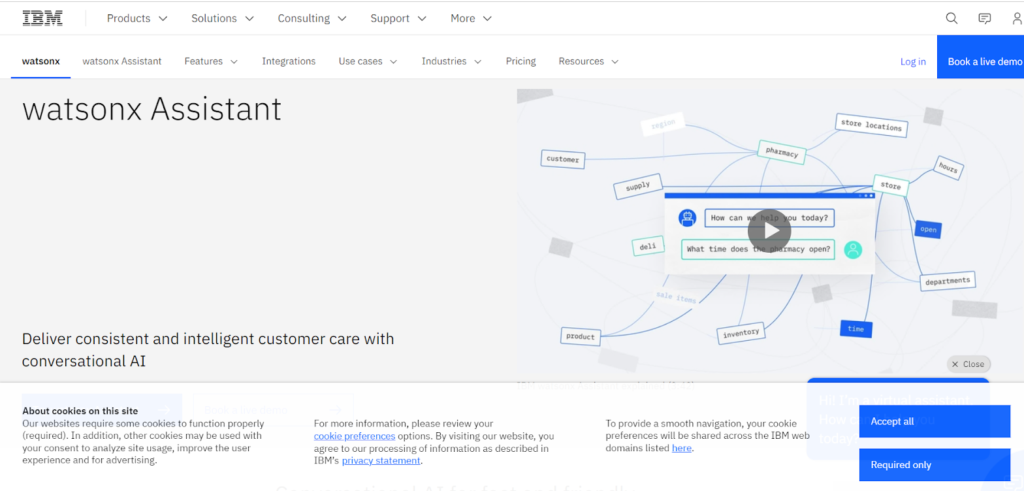
IBM Watson Assistant is an AI-powered virtual agent that provides businesses with the capability to enhance their customer service experience. It is designed to understand natural language, enabling it to interact with users in a more human-like manner. The tool can be integrated into various channels such as websites, mobile applications, and messaging platforms, making it accessible to a broad range of customers.
Pros
- Advanced AI Capabilities: IBM Watson Assistant is known for its sophisticated natural language processing abilities. It can understand and respond to customer inquiries in a more human-like manner, improving the overall customer experience.
- Customization and Flexibility: The platform offers a high degree of customization, allowing businesses to tailor the virtual agent to their specific needs. This flexibility makes it suitable for a wide range of industries and applications.
- Continuous Learning and Improvement: Watson Assistant uses machine learning to improve its interactions over time. The more it interacts with users, the better it becomes at understanding and responding to various queries, making it more effective in handling customer support.
Cons
- Complexity in Setup and Management: The advanced features of IBM Watson Assistant might require a steep learning curve for setup and ongoing management. This can be a challenge for businesses without technical expertise.
- Potential Cost Implications: While not specific to Watson Assistant, advanced AI solutions can be more expensive than simpler alternatives. The cost may be a significant factor for small or medium-sized businesses.
- Integration Challenges: Integrating Watson Assistant with existing systems and workflows may require additional resources and effort, particularly if a business uses legacy systems or unique software environments.
Website Overview
Traffic
77.3K
Traffic by location
India 2.6M
United States 2.2M
Japan 552K
Top 3 organic competitors
Hcltechsw.com
Jazz.net
Lenovofiles.com
Pricing
Lite USD 0
Plus Starting at USD 140/month
HubSpot CRM
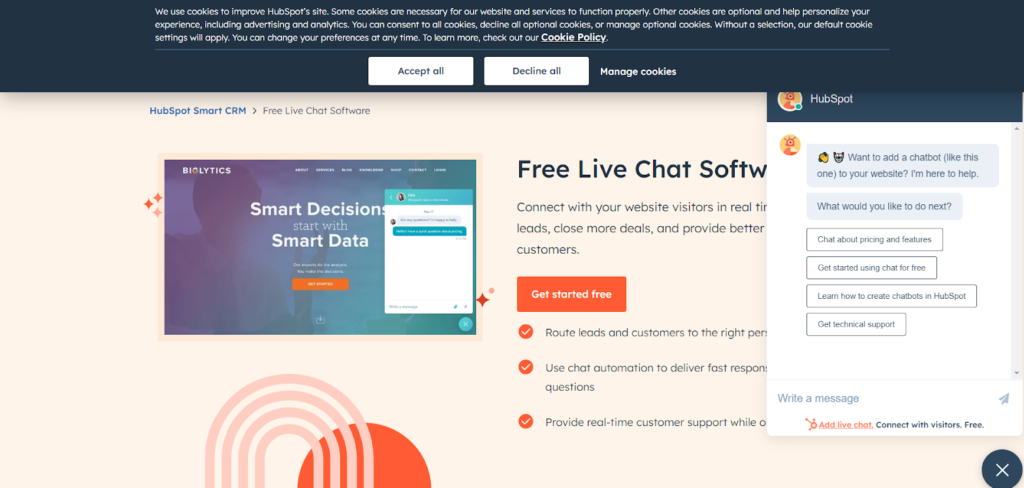
HubSpot’s Free Live Chat Software offers a range of features to enhance customer engagement on websites.
Real-Time Connection with Website Visitors: This tool enables businesses to connect with website visitors in real-time, which can help in converting new leads, closing more deals, and providing superior customer support.
Customizable Live Chat Widget: HubSpot’s live chat allows customization to match the brand’s look and feel. Businesses can create targeted welcome messages for different web pages or audience segments.
Chatbot Integration for Automation: The live chat tool is integrated with a chatbot builder, enabling businesses to automate repetitive tasks. These chatbots can assist in qualifying leads, booking meetings, and providing answers to common queries, facilitating personalized conversations at scale.
Pros
- Real-Time Engagement and Lead Conversion: HubSpot’s live chat software enables businesses to connect with website visitors in real-time, helping convert new leads and close more deals. This immediate engagement can significantly enhance customer experience and support.
- Customization and Personalization: The live chat tool allows customization to match the brand’s look and feel. Businesses can create targeted welcome messages for different web pages or audience segments, offering a personalized experience for visitors.
- Integration with CRM and Chatbot Automation: The software integrates seamlessly with HubSpot’s CRM, providing full visibility into customer and prospect interactions. It also includes a chatbot builder for automating responses to common questions, helping in qualifying leads and booking meetings.
Cons
- Potential Overdependence on Automation: While chatbots offer efficiency, over-reliance on them may lead to a lack of personal touch in customer interactions, which could be detrimental to customer satisfaction in certain scenarios.
- Learning Curve and Management: Implementing and managing live chat and chatbot systems can be complex, especially for businesses without prior experience in such tools. The learning curve associated with these systems might require additional training and resources.
- Integration Challenges with Existing Workflows: For businesses using other CRM systems or customer support tools, integrating HubSpot’s live chat might pose challenges. Compatibility and seamless integration with existing workflows and systems can be a concern.
Website Overview
Traffic
1.7M
Traffic by location
United States 675.3K
India 204.8K
United Kingdom 146.3K
Top 3 organic competitors
Wisestamp.com
Mysignature.io
Mail-signatures.com
Pricing
Professional €792/month
Enterprise €3,300/month
Comm100 Chatbot
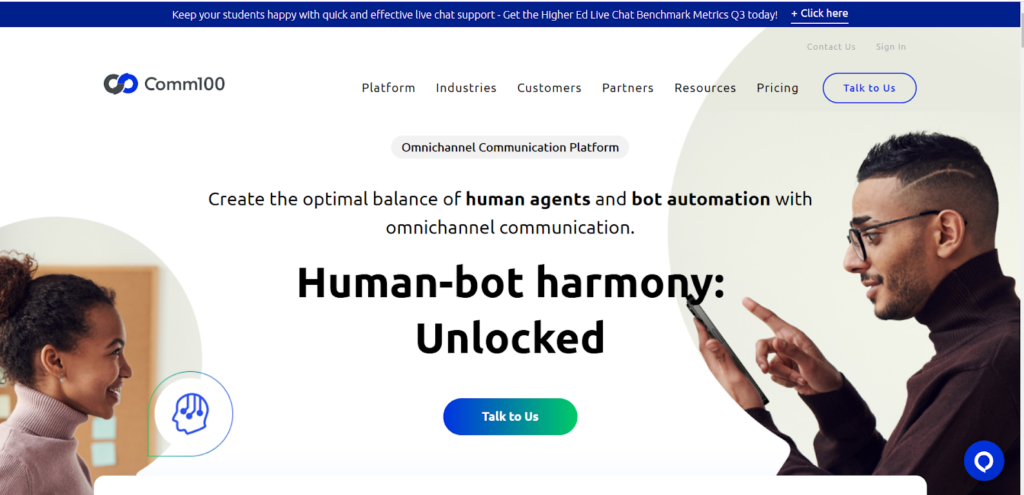
Comm100 offers an omnichannel communication platform that focuses on creating a harmonious balance between human and bot engagement, aiming to enhance customer service at a large scale.
Pros
- Versatility and Customization: Comm100 offers a platform with more than 100 features for customer engagement, available in bundles or individually. This versatility allows businesses to customize their approach to customer service according to their specific needs.
- Security and Integration: The platform emphasizes security with compliance to standards like SOC 2 Type II, ISO, PCI DSS, and HIPAA. Additionally, it offers seamless integration capabilities with existing customer experience systems through a flexible API, allowing for easy incorporation into different business environments.
- Omnichannel Communication and Automation: Comm100 supports real-time communication across various channels, including text, audio, video, and co-browsing, and integrates customer- and agent-facing bots for enhanced scalability and efficiency.
Cons
- Complexity of Features: The extensive range of features, while beneficial, could also lead to complexity in implementation and use, especially for businesses without a dedicated IT team.
- Potential Over-Reliance on Automation: While automation increases efficiency, there’s a risk of over-reliance on bots, which might lead to less personalized customer interactions.
- Integration Challenges: Although Comm100 offers integration capabilities, aligning it seamlessly with existing tools and workflows might be challenging for some businesses, especially if they are using non-standard or legacy systems.
Website Overview
Traffic
4.4 K
Traffic by location
United States 1.6K
Turkey 769
India 412
Top 3 organic competitors
Revechat.com
Livechat.com
Proprofschat.com
Pricing
Live Chat Startup $31USD/agent/month
Live Chat Plus $55USD/agent/month
Happyfox
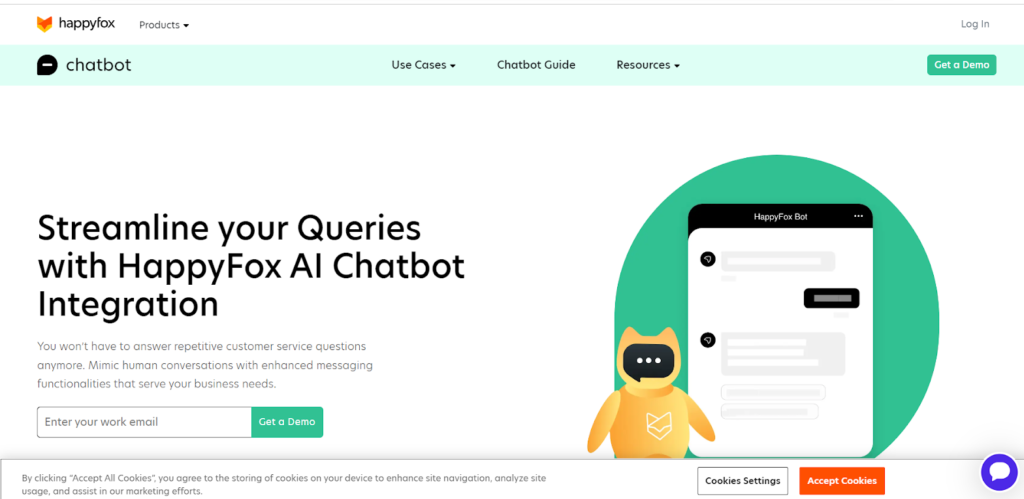
HappyFox Chatbot is an AI-powered help desk automation tool designed to streamline customer support operations for various business types.
Pros
- Streamlined Query Handling: HappyFox AI Chatbot helps in managing repetitive customer service queries, using enhanced messaging functionalities that can mimic human conversations. This streamlining reduces the workload on human agents and improves efficiency.
- Customization and Learning Capability: The chatbot can be custom-built to fit specific business needs. It uses natural language processing and understanding to learn from customer interactions, improving its effectiveness over time through continuous feedback and training.
- Integration with Help Desks: HappyFox Chatbot integrates with systems like HappyFox Help Desk and Zendesk Support, ensuring efficient ticket creation, real-time communication synchronization, and overall service agent efficiency.
Cons
- Potential Over-Reliance on Automation: While automation can increase efficiency, there’s a risk of over-reliance on chatbots, which may result in less personalized customer service.
- Complexity in Setup and Management: Implementing a sophisticated chatbot like HappyFox might require a certain level of technical expertise, posing a challenge for businesses without a dedicated IT team.
- Integration Challenges with Existing Systems: While the chatbot offers integration capabilities, aligning it seamlessly with existing tools and workflows might be challenging, especially for businesses using non-standard or legacy systems.
Website Overview
Traffic
10.6K
Traffic by location
United States 5.5K
India 2.8K
United Kingdom 543
Top 3 organic competitors
Freshworks.com
Helpscout.com
Proprofsdesk.com
Pricing
Starter $29 /month
Growth $49/month
Scale $149/month
Scale Plus $299/month
Ivy.ai
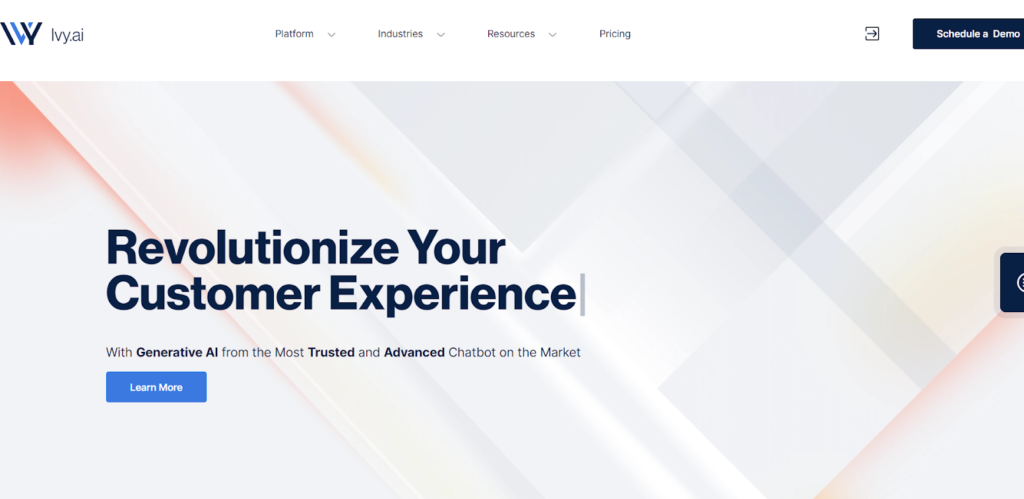
Ivy AI is an artificial intelligence platform designed to provide automated customer support and engagement solutions. Such platforms often utilize chatbots powered by natural language processing (NLP) to interact with users in a human-like manner. They are commonly used in customer service to handle queries, provide information, and assist with various tasks efficiently.
AI platforms like Ivy AI may offer integration with existing business systems, allowing for seamless communication and data sharing. They often include features like machine learning, which enables the system to learn from interactions and improve over time, providing more accurate and helpful responses.
The platform might also offer analytics and reporting tools to help businesses understand customer interactions and improve their services based on this data. These tools can track metrics like engagement rates, resolution times, and customer satisfaction.
Pros
- Efficiency in Handling Queries: AI platforms typically use chatbots to automate responses, efficiently handling a high volume of customer inquiries.
- Continuous Improvement Through Learning: Such platforms often incorporate machine learning, allowing the system to improve its responses over time based on user interactions.
- Data Analytics for Insights: AI platforms usually offer analytics tools, providing valuable insights into customer behavior and preferences.
Cons
- Potential for Impersonal Interaction: Relying heavily on AI for customer interactions might lead to a lack of personal touch, which can be crucial in customer service.
- Technical Complexity: Implementing and maintaining an AI system can be technically challenging, especially for businesses without specialized IT resources.
- Integration Issues: Integrating AI platforms with existing business systems can sometimes be complex and may require additional investment in time and technology.
Website Overview
Traffic
350
Traffic by location
United States 338
Singapore 4
India 2
Top 3 organic competitors
Chatbot.com
Cleverbot.com
Morgan.edu
Pricing
Pricing upon request
Kindly Assist
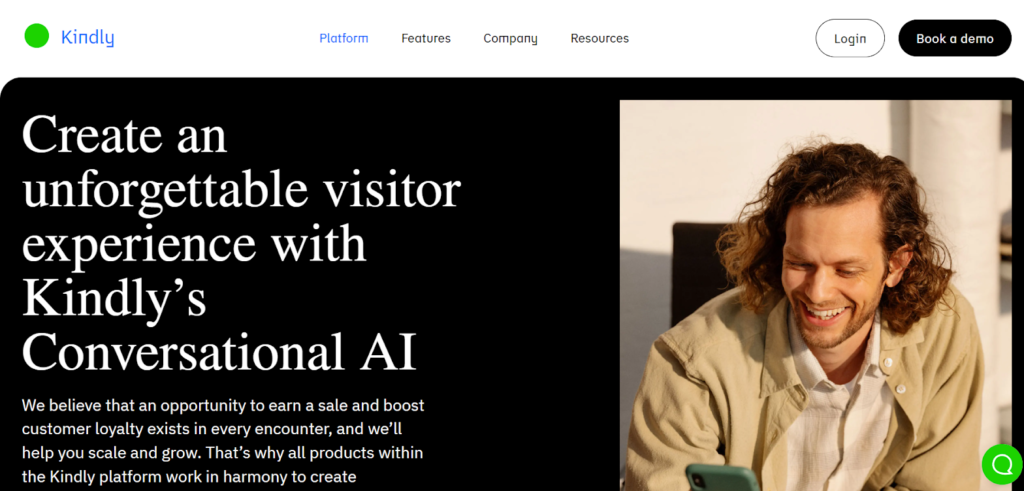
The Kindly platform specializes in Conversational AI, designed to enhance e-commerce experiences. It includes features like a 24/7 AI Chatbot for automated support, a Virtual Shopping Assistant to boost e-commerce growth, and tools for Conversion Optimization to increase sales. The platform integrates seamlessly with existing software stacks and offers Live Chat Support for real-time customer engagement. It employs machine learning and natural language processing to provide a personalized shopping experience, aiming to increase customer loyalty and sales while reducing costs.
Pros
- 24/7 AI Chatbot: Offers continuous, automated customer support.
- Virtual Shopping Assistant: Enhances the e-commerce experience, potentially boosting sales.
- Integration with Existing Software: Seamlessly fits into current business infrastructure.
Cons
- Dependency on AI: Might not always understand complex customer queries.
- Potential Learning Curve: Implementing and optimizing AI tools can require time and training.
- Limited Personal Touch: AI cannot completely replicate human interaction, which might impact customer experience.
Website Overview
Traffic
740
Traffic by location
India 260
United States 130
Russian Federation 82
Top 3 organic competitors
Yellow.ai
Chatbot.com
Masterofcode.com
Pricing
Pricing upon request
Linc
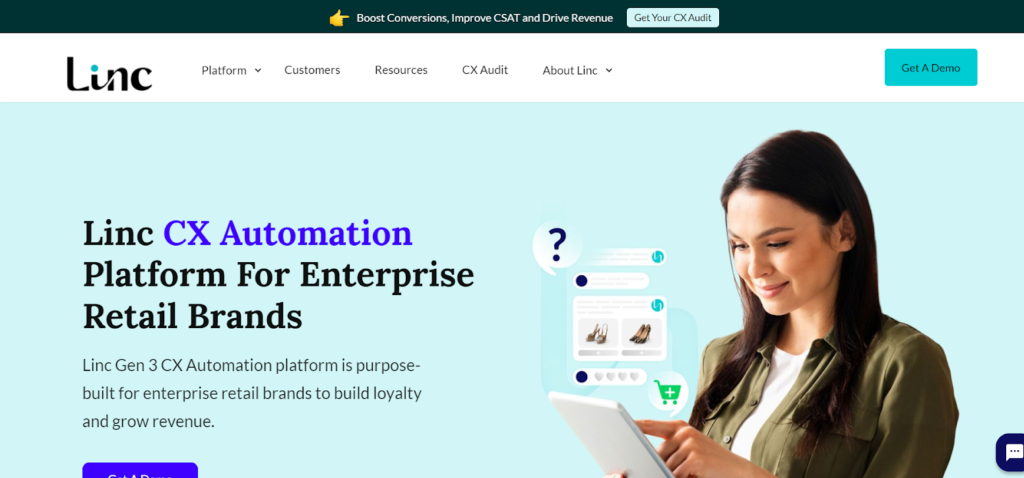
The Linc platform is a Gen 3 Customer Experience (CX) Automation solution designed for retail and e-commerce enterprises. It focuses on enhancing customer experiences through improved chat conversations, quick resolution of order issues, and better buying experiences that drive loyalty and retention. Key features include patented conversational AI, brand-specific vocabulary learning, and integration with various retail and e-commerce platforms without extra fees. The platform aims to increase revenue, operational efficiency, and customer satisfaction.
Pros
- Advanced Conversational AI: Enhances customer interaction with brand-specific vocabulary learning.
- Integration Capabilities: Easily integrates with various retail and e-commerce platforms.
- Operational Efficiency: Aims to improve customer satisfaction and increase revenue.
Cons
- Complexity: The advanced features might be challenging for users without technical expertise.
- AI Limitations: Might not handle highly complex or unique customer inquiries effectively.
- Dependence on Technology: Heavy reliance on digital automation may lead to impersonal customer experiences.
Website Overview
Traffic
224
Traffic by location
United States 176
Malaysia 25
United Arab Emirates 3
Top 3 organic competitors
Pacsun.com
Trackingsector.com
Kclinc.org
Pricing
Pricing upon request
Boost
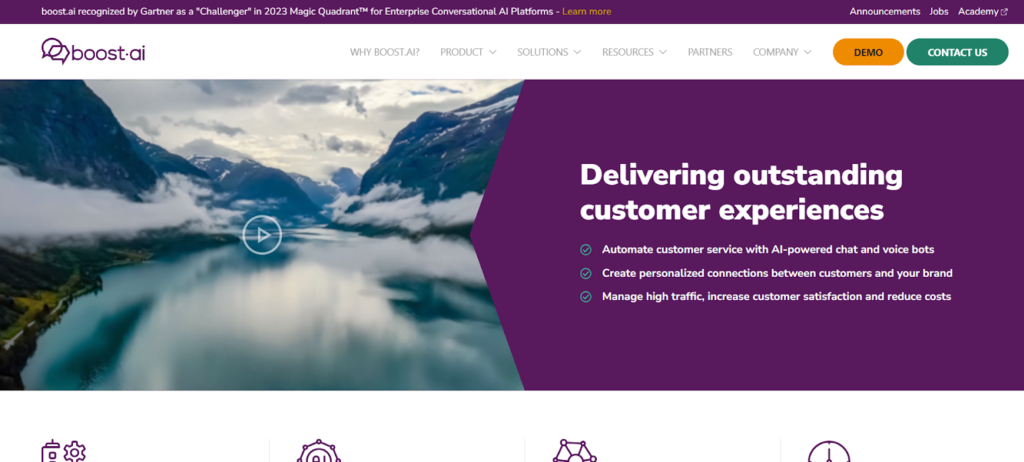
The Boost.ai website presents their Conversational AI Platform for Enterprises, emphasizing automated customer service through AI-powered chat and voice bots. It aims to create personalized connections between customers and brands, managing high traffic while increasing satisfaction and reducing costs. The platform is scalable, secure, and integrates seamlessly with business ecosystems. It utilizes generative AI for creative control and offers consistent, high-quality interactions across all customer touch points, providing 24/7 service.
Pros
- Automated Customer Service: AI-powered bots improve efficiency and response times.
- Scalability: Adapts to varying levels of customer interaction traffic.
- 24/7 Availability: Offers continuous customer support.
Cons
- Complex Implementation: May require technical expertise to fully integrate.
- Potential for Misunderstandings: AI might not always grasp the nuances of customer queries.
- Lack of Human Touch: Reliance on AI could detract from personalized customer service.
Website Overview
Traffic
9.8K
Traffic by location
United States 3.8K
India 1.4K
United Kingdom 1.4K
Top 3 organic competitors
Yellow.ai
Chatbot.com
Liveperson.com
Pricing
Pricing upon request
Replicant Voice
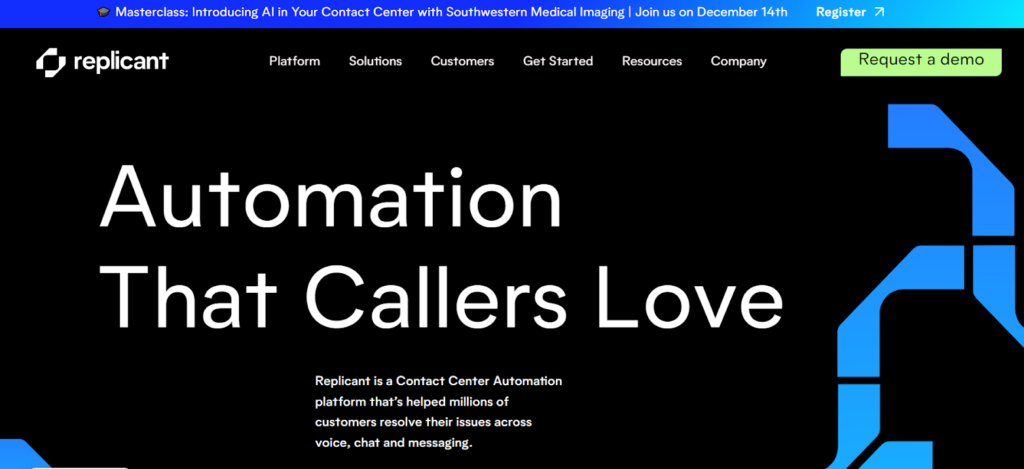
Replicant is a Contact Center Automation platform designed to automate customer service interactions. It helps resolve common customer issues quickly and cost-effectively, without compromising on customer experience. The platform is available 24/7, ensuring zero wait times and a consistent customer experience. It’s scalable to adapt to varying demand, whether due to seasonality or unexpected spikes in call volume. Replicant also integrates seamlessly with various business systems like IVR, CCaaS, and CRM.
Pros
- 24/7 Availability: Offers continuous customer service.
- Scalability: Adapts to varying customer interaction volumes.
- Integration with Business Systems: Compatible with systems like IVR, CCaaS, and CRM.
Cons
- Potential for Misunderstandings: Automated systems might not fully grasp complex customer issues.
- Dependence on Technology: Heavy reliance on digital solutions may limit personal interaction.
- Implementation Complexity: May require technical know-how to integrate effectively.
Website Overview
Traffic
1.4K
Traffic by location
United States 814
Canada 297
India 89
Top 3 organic competitors
Ttec.com
Babelforce.com
Vcc.live
Pricing
Pricing upon request
Khoros
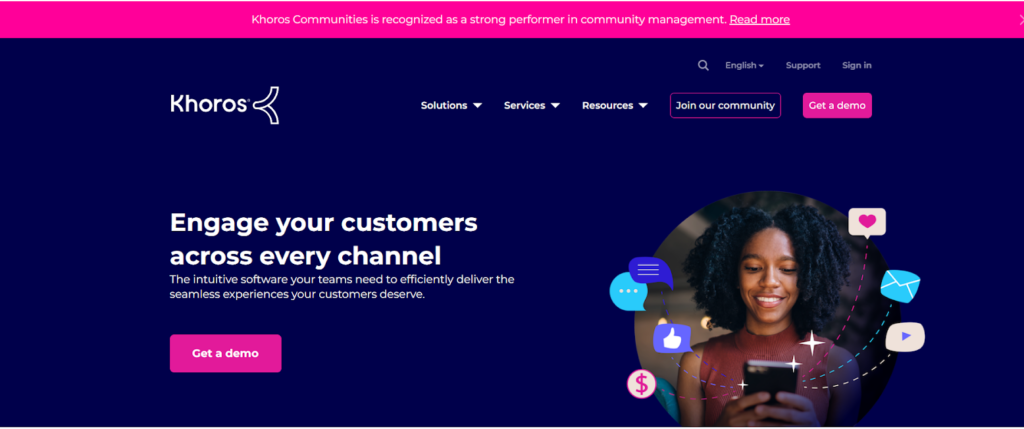
Replicant is a Contact Center Automation platform designed to automate customer service interactions. It helps resolve common customer issues quickly and cost-effectively, without compromising on customer experience. The platform is available 24/7, ensuring zero wait times and a consistent customer experience. It’s scalable to adapt to varying demand, whether due to seasonality or unexpected spikes in call volume. Replicant also integrates seamlessly with various business systems like IVR, CCaaS, and CRM.
Pros
- Multi-Channel Solutions: Enhances customer experience across various digital platforms.
- AI Integration: Automates and streamlines customer interactions.
- Operational Insights: Provides valuable data for business decision-making.
Cons
- Complexity in Integration: May require technical expertise for full utilization.
- Potential Over-Reliance on Automation: Could impact the quality of customer service.
- Cost: Advanced features might come with a higher price tag.
Website Overview
Traffic
17.8K
Traffic by location
United States 10.9K
India 1.6K
United Kingdom 1.2K
Top 3 organic competitors
Datareportal.com
Thesocialshepherd.com
Omnicoreagency.com
Pricing
Pricing upon request
Hootsuite
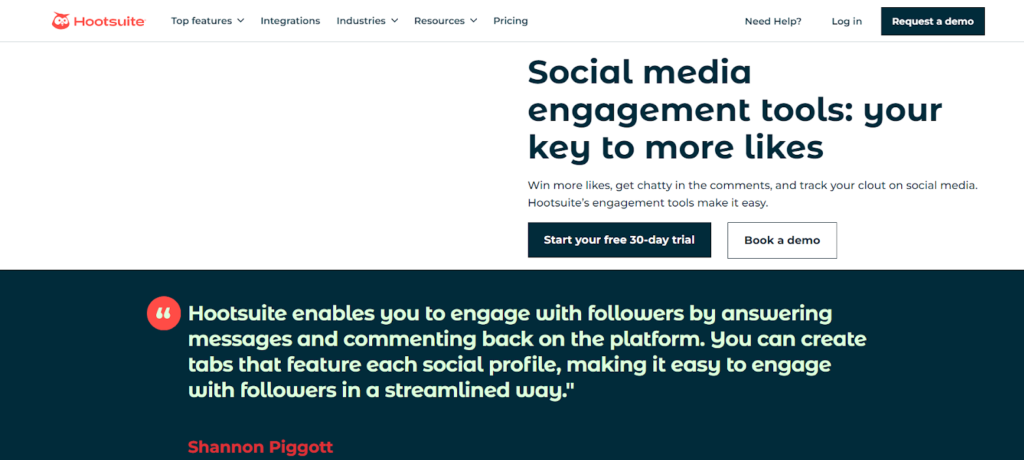
Hootsuite’s Social Media Engagement platform offers tools to enhance engagement on social media. It enables users to schedule and publish content, track engagement, and analyze social media performance. Features include an automated hashtag generator, a consolidated dashboard for managing messages and comments, and social listening for keywords and hashtags. The platform also provides tools for measuring engagement rates, generating reports, and integrating with various social media networks. Additionally, Hootsuite offers free resources like engagement rate calculators and guides to increase social media engagement.
Pros
- Comprehensive Dashboard: Centralized management of messages and comments across different social media platforms.
- Advanced Analytics: Detailed insights into engagement rates and social media performance, helping in strategizing content.
- Scheduling and Publishing: Efficient planning and distribution of content across various social networks.
Cons
- Learning Curve: New users may find the interface and multitude of features overwhelming.
- Cost: While offering robust features, the platform may be costly for small businesses or individual users.
- Limited Customization: Some users might find the customization options for reports and analytics less extensive than desired.
Website Overview
Traffic
670K
Traffic by location
United States 196.2K
India 117.3K
United Kingdom 48.1K
Top 3 organic competitors
Spinxo.com
Namechk.com
Namelix.com
Pricing
Professional $99 per month
Team $249 per month
LiveAgent with Quriobot
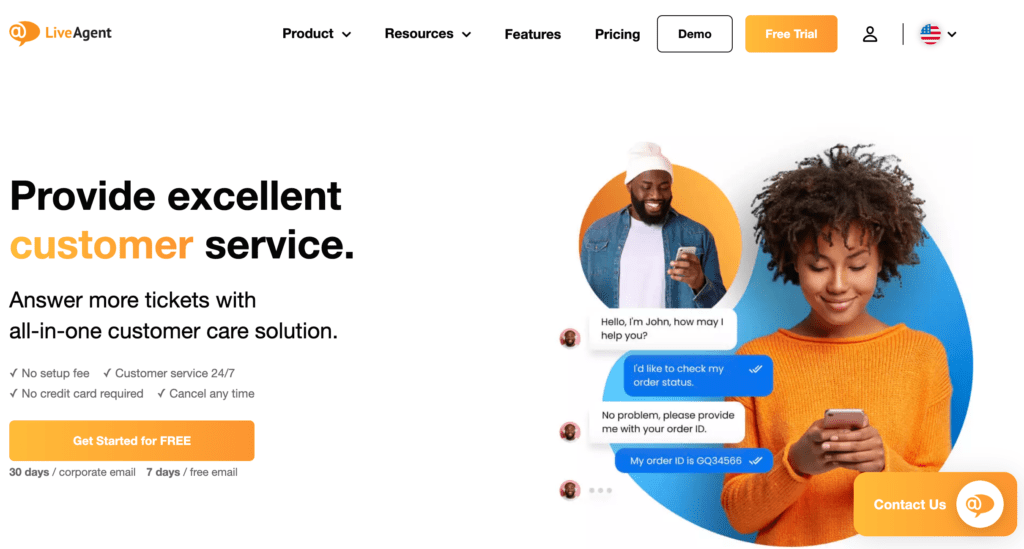
The LiveAgent website’s page on Quriobot integration describes Quriobot as a customizable chatbot software that operates 24/7. It is designed to help businesses increase conversions and lead retrieval rates. Quriobot can be used for customer support, lead generation, and gathering feedback. The platform offers various pricing plans, templates, and a developer mode for extended features. The integration with LiveAgent allows seamless chatbot-to-live chat transitions and is useful for businesses looking to enhance customer interaction and service efficiency.
Pros
- 24/7 Availability: Quriobot operates continuously, ensuring constant customer engagement.
- Seamless Integration: Easy integration with LiveAgent for efficient customer support and service.
- Customization: Offers various templates and a developer mode for tailored chatbot experiences.
Cons
- Complexity for Beginners: The wide range of features and customization might be overwhelming for new users.
- Cost: Depending on the pricing plan, it may be expensive for small businesses.
- Limited to Chatbot Functions: May not fully replace the nuanced understanding and problem-solving abilities of human customer support.
Website Overview
Traffic
326K
Traffic by location
United States142.5K
India 52.6K
Philippines 27.3K
Top 3 organic competitors
Voicespin.com
Neodove.com
Concur.com
Pricing
Small business Try for free $9/agent
Medium business Try for free $29/agent
Large business Try for free $49/agent
Enterprise Try for free $69/agent
Ada
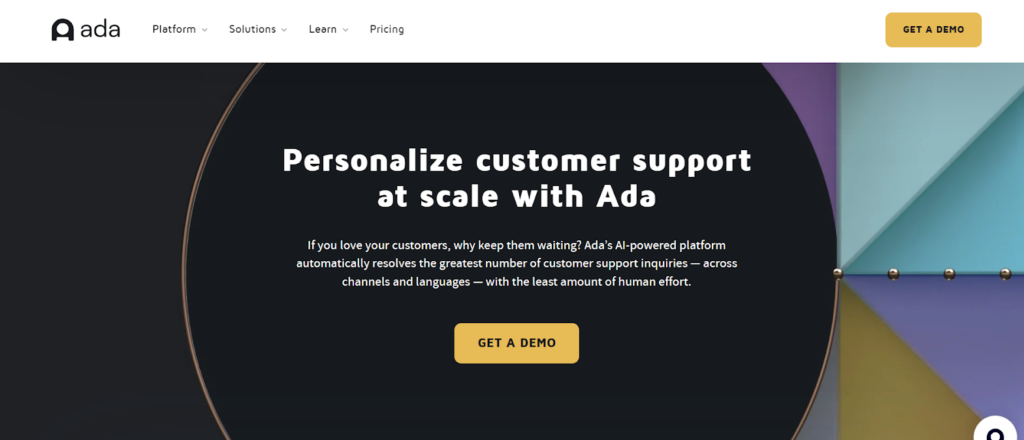
Ada offers an AI-powered customer service chatbot designed for automated customer support across various channels and languages. It aims to eliminate long wait times by providing instant support 24/7. Ada focuses on hyper-personalizing customer interactions using the customer’s unique information, intent, and interests. Additionally, it frees customer service agents from repetitive tasks, allowing them to handle more complex inquiries. The platform supports integration with various business systems and offers out-of-the-box applications for personalized customer support at scale.
Pros
- 24/7 Support: Offers round-the-clock assistance, reducing wait times for customers.
- Hyper-Personalization: Tailors interactions using customer-specific data, enhancing user experience.
- Efficiency for Agents: Automates routine queries, allowing agents to focus on complex issues.
Cons
- Complex Setup: May require substantial setup and customization.
- Dependence on Technology: Potential for technical glitches impacting customer interactions.
- Limited Understanding: AI might not fully grasp nuanced customer queries like a human agent.
Website Overview
Traffic
6.3K
Traffic by location
United States 2.6K
Canada 1.4K
India 465
Top 3 organic competitors
Intercom.com
Chatbot.com
Netomi.com
Pricing
Pricing upon request
Jetlink Conversational AI Platform
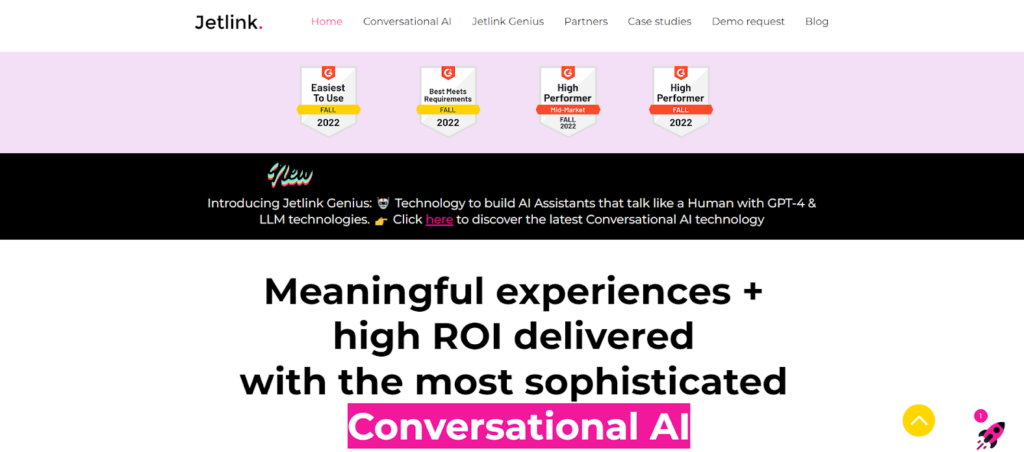
Jetlink.io offers advanced AI-powered enterprise chatbots, known as Jetlink Genius, which utilize Large Language Model (LLM) technology like ChatGPT. These chatbots are designed to provide human-like conversations, enhance customer experiences, and support various business applications. Jetlink emphasizes its capability for sophisticated dialogue management, cutting-edge natural language understanding, omnichannel messaging, and robust security and privacy measures. The platform aims to improve customer service efficiency and satisfaction, offering significant ROI and reduced customer wait times.
Pros
- Advanced AI Capabilities: Jetlink Genius provides human-like conversational experiences.
- Omnichannel Support: Enables consistent customer service across multiple platforms.
- Efficiency: Reduces wait times and improves customer service productivity.
Cons
- Complexity: May require technical expertise to fully leverage advanced features.
- Cost: Advanced AI solutions can be more expensive.
- Limited Human Interaction: Over-reliance on AI could potentially reduce personal customer service touchpoints.
Website Overview
Traffic
296
Traffic by location
United States 103
Turkey 99
United Kingdom 35
Top 3 organic competitors
Botpress.com
Tidio.com
Chatfuel.com
Pricing
Pricing upon request
Conclusion
In this article, you learned about 25 AI chatbot tools for customer service, highlighting their impact on improving efficiency and personalizing customer interactions.
The advantages, including 24/7 availability and reduced operational costs, and drawbacks, such as limited emotional intelligence and difficulties in handling complex queries, were discussed.
This analysis emphasizes the complexity and potential of using AI chatbots in contemporary customer service practices.
